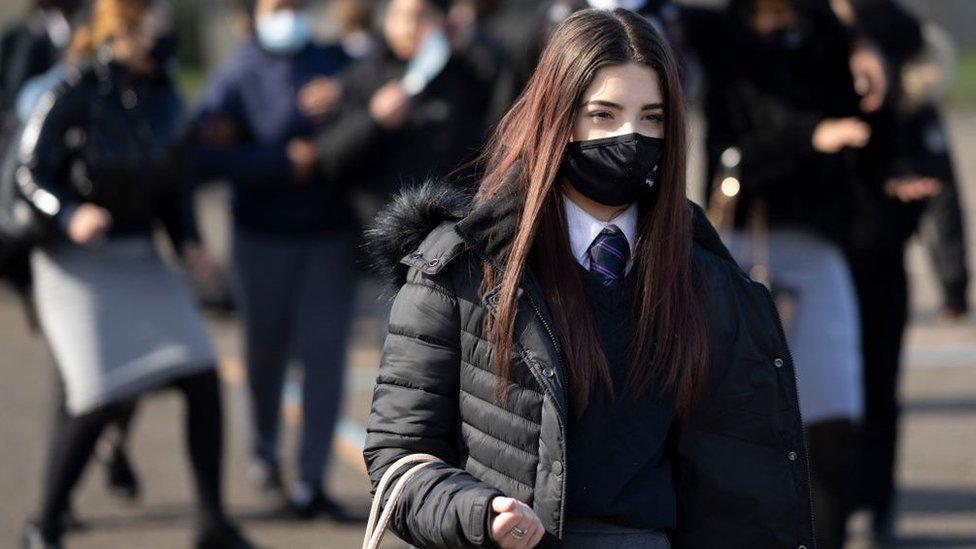Covid: Pupils return to Wales' schools amid concerns
- Published
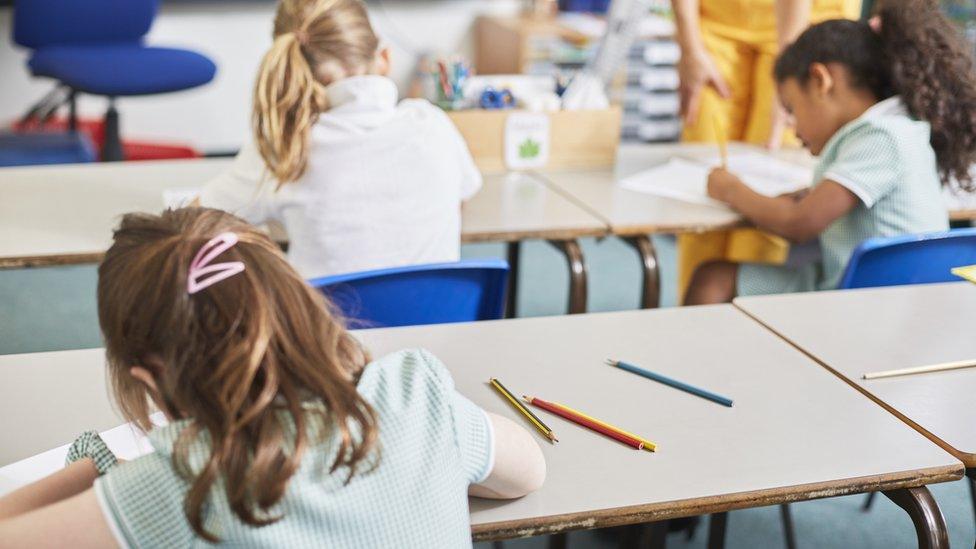
Children go back to school this week in parts of Wales, while others return after the weekend
Pupils have begun returning to schools for the new term as the Welsh government pledges to watch Covid cases.
Some children go back this week while others return after the weekend.
Covid measures are being based on local risk, but head teachers have asked for more information from government.
One said schools hoped for "as much normality as possible" at the start of a third school year affected by coronavirus.
At Ysgol Gyfun Gymraeg Llangynwyd, near Maesteg, Bridgend county, there is a staggered return for pupils.
Head teacher Meurig Jones said everyone just wanted normality.
"Now that we've seen society go to category zero, and greater freedom and movement, I think that's what schools are hoping for," he said.
The return of pupils has coincided with an increase in Covid rates, especially among the young.
Record high coronavirus cases in Scotland have partly been blamed on schools returning in mid-August, earlier than elsewhere in the UK.
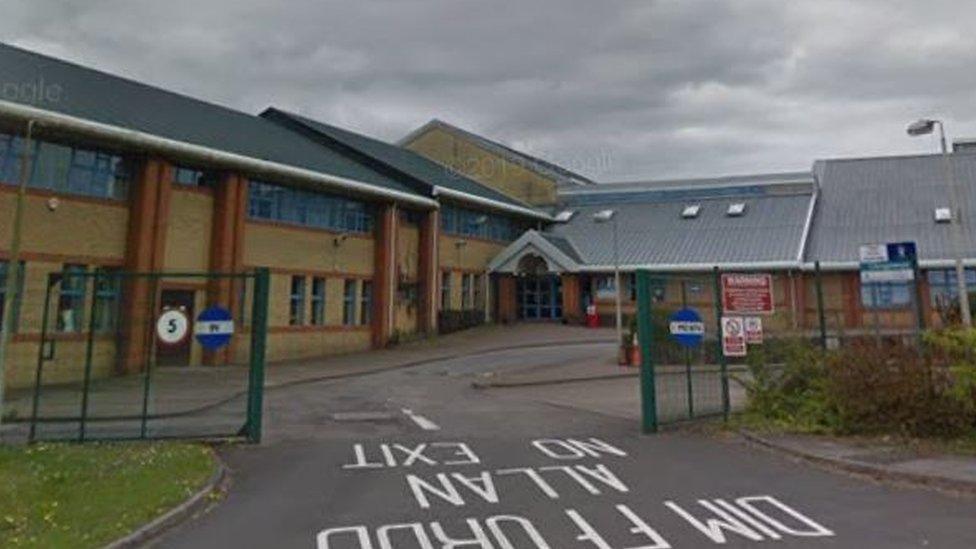
"I am concerned, looking at what has happened in Scotland with them returning," Mr Jones said.
Dr Christine Tait-Burkard, an expert in infection and immunity at the University of Edinburgh, told BBC Radio Wales with Claire Summers the vaccination programme meant many people testing positive in Scotland were experiencing milder Covid symptoms.
"I think people are now aware that these numbers do not directly translate into hospitalisations anymore," she said.
"With vaccination, many people have much milder disease, and do not only not get admitted to hospital, but when they get admitted, they're also spending much less time there, which is good news."
But Prof Adam Finn, a member of the Joint Committee on Vaccination and Immunisation (JCVI), said vaccinations were not the solution to school outbreaks.
"Schools are going back, but I would emphasise that these vaccines are not really terribly good at preventing mild infection and transmission. What they're good at is stopping you from getting seriously ill and that is something that is very unusual in healthy children," he said.
"So I think the concept that somehow vaccination can keep schools going and stop outbreaks and is there as a solution to that problem, is not a very strong one I would say."
Mr Jones said: "The main goal here is to keep our staff and learners safe, but to make sure they get the education they deserve.
"There's been enough upheaval over the last year-and-a-half and we want to get back to that normality."
The Welsh government said rising Covid rates were "in line with expectations".
"We will monitor the situation very closely when schools return, but the high rates of vaccination in Wales have weakened the link between the virus and hospitalisations," a spokesman said.
Before the summer holiday, the government said contact groups, or "bubbles," would not be required from September and masks in classrooms would not be routinely recommended.
They are still needed for secondary pupils on school transport.
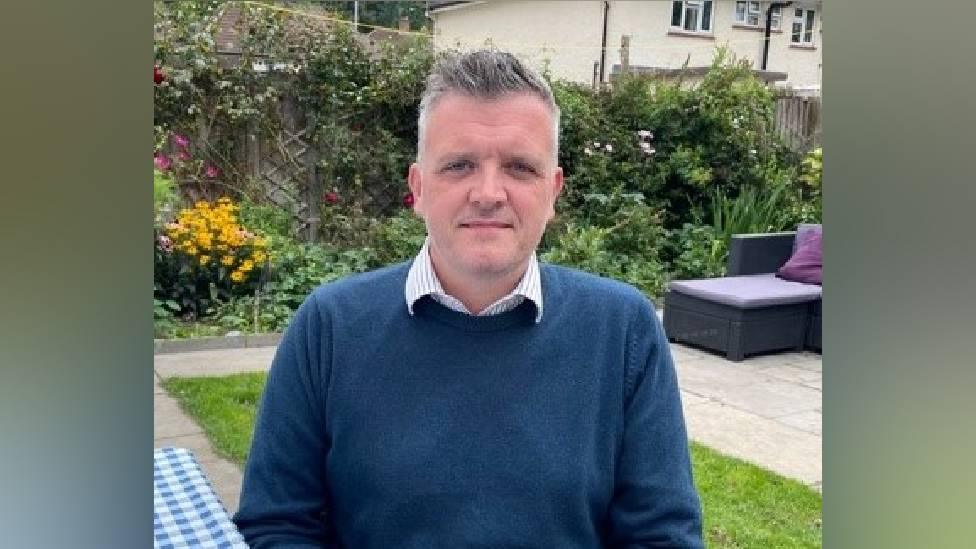
Head teacher Meurig Jones hopes to see some return to normality, but still has concerns about Covid
Last week, a Welsh government plan said it should be "business as usual" in schools where possible, but added that measures could be escalated or removed according to local factors.
"The framework isn't clear enough," Mr Jones said, echoing criticism from education unions.
"It gives us some sort of information. I feel it lacks depth of what will be required."
The Welsh government claimed risk in schools was low when the country was at alert level zero, external.
"Schools will only need to consider putting additional measures in place if the local risks differ from this national rating," a spokesman said.
"Local authorities will work with their schools to decide how these measures should be tailored."
Secondary pupils have been encouraged to take lateral flow tests before going back, and to stay home if they are positive.
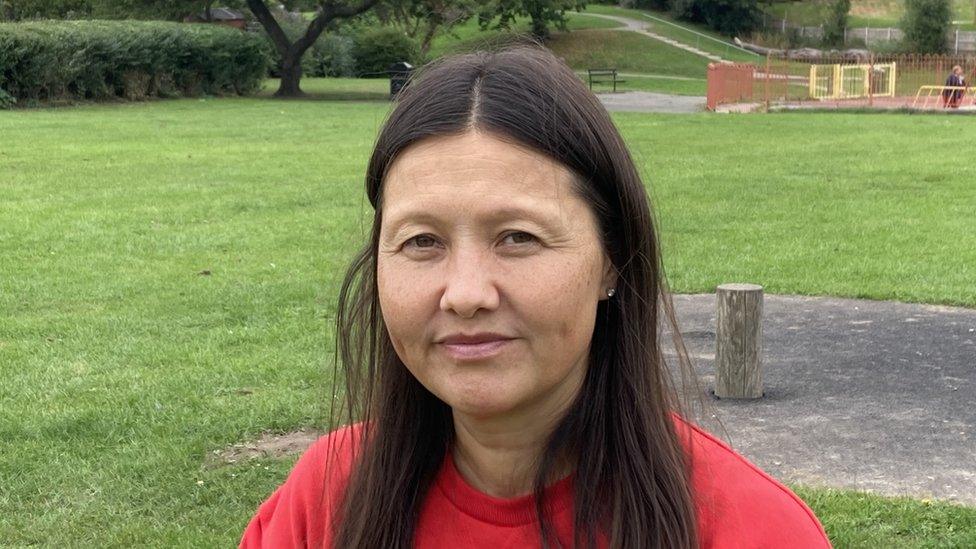
Nicola Chan Gizzi, from Abergele, was "apprehensive" as her children prepared to go back to classes
Cwm Taf Morgannwg health board's public health director, Prof Kelechi Nnoaham, said it was "imperative" steps were taken to stop Covid spreading in schools.
"Once they're back in school, students should continue to take lateral flow tests twice a week to make sure they're not spreading the virus unknowingly," he said.
"Young people's education has been hit hard by this virus, and it's important we keep classrooms open as much as possible."
Wales' chief medical officer, Frank Atherton, said on Wednesday that 61% of 16 and 17-year-olds had received their first vaccine dose, and those who had not were being urged to.
Nicola Chan Gizzi, from Abergele, Conwy county, said she was "apprehensive" as her children prepared to go back.
The mum-of-six wished they were still in class bubbles as a Covid outbreak would then be easier to control.
"I feel the spread will be increased when the children do go back to school," Ms Gizzi said.
Under-18s no longer have to isolate if they are a close contact of someone who has tested positive.
This means it is less likely large groups of children will have to stay away from school.

Ms Gizzi's daughter Anna-Beth, left, had "mixed feelings" about returning
Ms Gizzi said: "In Scotland, for example, numbers have really gone up since children returned to school.
"We have some elderly, vulnerable members in our family and it's really, really difficult.
"We try to just meet outside and try to keep each other safe, it is a difficult position."
Ms Gizzi's daughter, Anna-Beth, had "mixed feelings" about returning to Denbighshire's Ysgol Glan Clwyd.
"Our school had decided to try and get everything back to normal as much as they can," the 15-year-old said.

MOTHERS, MISSILES AND THE AMERICAN PRESIDENT: The story of Greenham told like never before
CITY OF HORSES: The people and traditions behind Swansea's urban horse community

- Published25 August 2021
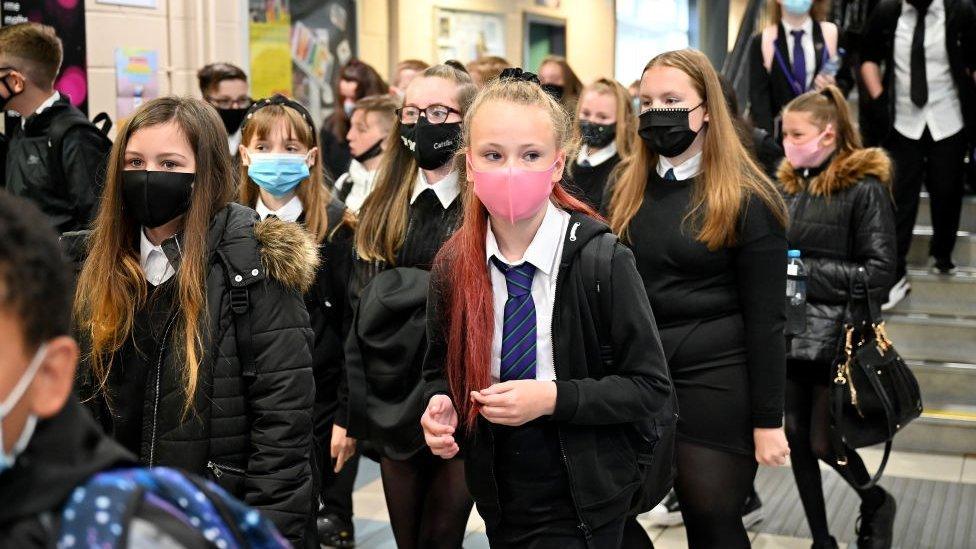
- Published23 February 2022
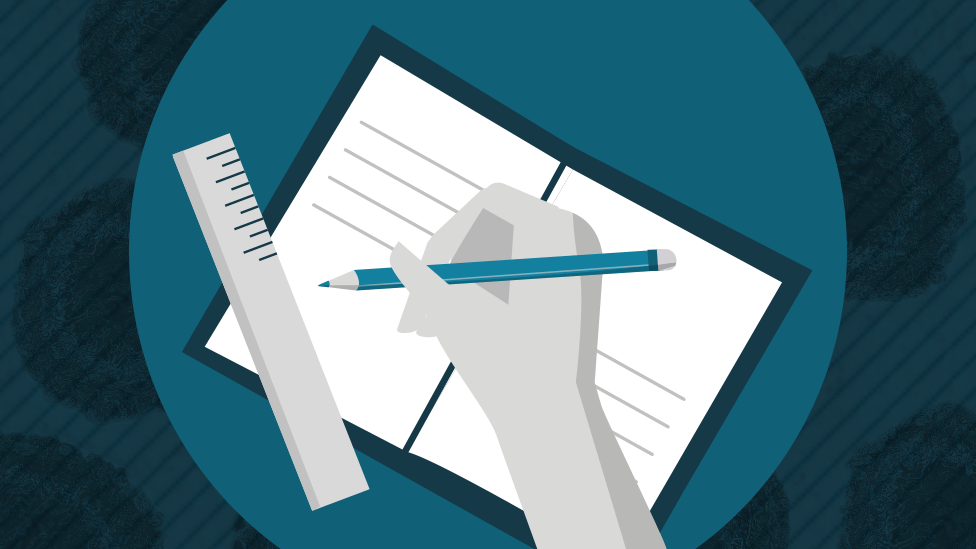
- Published27 August 2021
